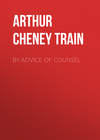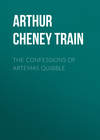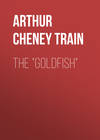Czytaj książkę: «By Advice of Counsel», strona 5
Contempt of Court
The court can't determine what is honor.—Chief Baron Bowes, 1743.
I know what my code of honor is, my lord, and I intend to adhere to it.—John O'Conner, M.P., in Parnell Commission's Proceedings, 103d Day; Times Rep. pt. 28, pp. 19 ff.
Well, honor is the subject of my story.—Julius Caesar, Act I, Sc 2.
"What has become of Katie—the second waitress?" asked Miss Althea Beekman of Dawkins, her housekeeper, as she sat at her satinwood desk after breakfast. "I didn't see her either last night or this morning."
Dawkins, who was a mid-Victorian, flushed awkwardly.
"I really had to let the girl go, ma'am!" she explained with an outraged air. "I hardly know how to tell you—such a thing in this house! I couldn't possibly have her round. I was afraid she might corrupt the other girls, ma'am—and they are such a self-respecting lot—almost quite ladylike, ma'am. So I simply paid her and told her to take herself off."
Miss Beekman looked pained.
"You shouldn't have turned her out into the street like that, Dawkins!" she expostulated. "Where has she gone?"
Dawkins gazed at her large feet in embarrassment.
"I don't know, ma'am," she admitted. "I didn't suppose you'd want her here so I sent her away. It was quite inconvenient, too—with the servant problem what it is. But I'm hoping to get another this afternoon from Miss Healey's."
Miss Beekman was genuinely annoyed.
"I am seriously displeased with you, Dawkins!" she returned severely. "Of course, I am shocked at any girl in my household misbehaving herself, but—I—wouldn't want her to be sent away—under such circumstances. It would be quite heartless. Yes, I am very much disturbed!"
"I'm sorry, ma'am," answered the housekeeper penitently. "But I was only thinking of the other girls."
"Well, it's too late to do anything about it now," repeated her mistress. "But I'm sorry, Dawkins; very sorry, indeed. We have responsibilities toward these people! However—this is Thursday, isn't it?—we'll have veal for lunch as usual—and she was so pretty!" she added inconsequently.
"H'm. That was the trouble!" sniffed the housekeeper. "We're well rid of her. You'd think a girl would have some consideration for her employer—if nothing else. In a sense she is a guest in the house and should behave herself as such!"
"Yes, that is quite true!" agreed her employer. "Still—yes, Brown Betty is very well for dessert. That will do, Dawkins."
Behind the curtain of this casual conversation had been enacted a melodrama as intensely vital and elemental as any of Shakespeare's tragedies, for the day Dawkins had fired Katie O'Connell—"for reasons," as she said—and told her to go back where she came from or anywhere she liked for that matter, so long as she got out of her sight, Katie's brother Shane in the back room of McManus' gin palace gave Red McGurk—for the same "reasons"—a certain option and, the latter having scornfully declined to avail himself of it, had then and there put a bullet through his neck. But this, naturally, Miss Beekman did not know.
As may have been already surmised Miss Althea was a gracious, gentle and tender-hearted lady who never knowingly would have done a wrong to anybody and who did not believe that simply because God had been pleased to call her into a state of life at least three stories higher than her kitchen she was thereby relieved from her duty toward those who occupied it. Nevertheless, from the altitude of those three stories she viewed them as essentially different from herself, for she came of what is known as "a long line of ancestors." As, however, Katie O'Connell and Althea Beekman were practically contemporaries, it is somewhat difficult to understand how one of them could have had a succession of ancestors that was any longer than that of the other. Indeed, Miss Beekman's friend, Prof. Abelard Samothrace, of Columbia University, probably would have admitted that just as the two had lived in the same house—albeit at different levels—on Fifth Avenue, so their forebears at some prehistoric period had, likely as not, occupied the same cave and had in company waded on frosty mornings the ice-skimmed swamps of Mittel Europa in pursuit of the cave bear, the mastodon and the woolly rhinoceros, and for afternoon relaxation had made up twosomes for hunting wives with stone clubs instead of mashies in their hairy prehensile hands.
It would seem, therefore, that—whatever of tradition might have originated in the epoch in question—glimmerings of sportsmanship, of personal pride, of tribal duty or of conscience ought to have been the common heritage of them both. For it was assuredly true that while Miss Katie's historic ancestors had been Celtiberians, clad on occasion only in a thin coating of blue paint, Miss Althea's had dwelt in the dank marshes of the Elbe and had been unmistakably Teutonic, though this curse had been largely removed by racial intermarriage during subsequent thousands of years. Indeed, it may well have been that in the dimmer past some Beekman serf on bended knee had handed a gilded harp to some King O'Connell on his throne. If the O'Connells were foreigners the Beekmans, from the point of view of the aboriginal American, were no less so simply because they had preceded them by a couple of hundred years.
Tradition is not a matter of centuries but of ages. If Katie inherited some of hers from the peat bogs adjacent to Tara's Halls in that remote period when there were still snakes in Ireland, Miss Althea had vicariously acquired others from the fur-clad barbarians described by Tacitus who spent their leisure time in drinking, gambling or splitting each other's skulls with stone mallets. On this subject see Spencer's "Data of Ethics" and Lecky's "History of European Morals." But all this entirely escaped Miss Althea, who suffered from the erroneous impression that because she was a Beekman and lived in a stone mansion facing Central Park she differed fundamentally not only from the O'Connells but from the Smiths, the Pasquales, the Ivanovitches and the Ginsbergs, all of whom really come of very old families. Upon this supposed difference she prided herself.
Because she was, in fact, mistaken and because the O'Connells shared with the Beekmans and the Ginsbergs a tradition reaching back to a period when revenge was justice, and custom of kinsfolk the only law, Shane O'Connell had sought out Red McGurk and had sent him unshriven to his God. The only reason why this everyday Bowery occurrence excited any particular attention was not that Shane was an O'Connell but that McGurk was the son of a political boss of much influence and himself one of the leaders of a notorious cohort of young ruffians who when necessary could be relied upon to stuff a ballot box or otherwise to influence public opinion. As Red was a mighty man in Gideon, so his taking off was an event of moment, and he was waked with an elegance unsurpassed in the annals of Cherry Hill.
"An' if ye don't put the son-of-a– who kilt me b'y in th' chair, ye name's mud—see?" the elder McGurk had informed District Attorney Peckham the next morning. "I've told the cops who done it. Now you do the rest—understand?"
Peckham understood very well. No one seeing the expression on McGurk's purple countenance could have failed to do so.
"We'll get him! Don't you worry!" Peckham had assured the desolated father with a manner subtly suggesting both the profoundest sympathy and the prophetic glories of a juridical revenge in which the name of McGurk would be upon every lip and the picture of the deceased, his family, and the home in which they dwelt would be featured on the front page of every journal. "We'll get him, all right!"
"See to it that ye do!" commented his visitor meaningly.
Therefore, though no one had seen him commit the crime, word was passed along the line to pick up Shane O'Connell for the murder of Red McGurk. It mattered not there was no evidence except the report of a muttered threat or two and the lie passed openly the week before.
Everybody knew that Shane had done it, and why; though no one could tell how he knew it. And because everybody knew, it became a political necessity for Peckham to put him under arrest with a great fanfare of trumpets and a grandiose announcement of the celerity with which the current would be turned through his body.
The only fly in the ointment was the fact that O'Connell had walked into the district attorney's office as soon as the rumor reached him and quietly submitted to being arrested, saying merely: "I heard you wanted me. Well, here I am!"
But though they badgered him for hours, lured him by every pretext to confess, put a stool pigeon in the same cell with him, and resorted to every trick, device and expedient known to the prosecutor's office to trap him into some sort of an admission, they got nothing for their pains. It was just one of those cases where the evidence simply wasn't forthcoming. And yet Peckham was aware that unless he convicted O'Connell his name would indeed be mud—or worse. This story, however, is concerned less with the family honor of the O'Connells than with that of the Beekmans.
Miss Althea was the last surviving member of her branch of the family. Though she would probably have regarded it as slightly vulgar to have been referred to as "one hundred per cent American" she was so nearly so—except for a reminiscent affection for "the late dear Queen"—that the phrase in her case would have been substantially correct. Her mother had been the daughter of a distinguished Revolutionary statesman who had been a signer of the Declaration of Independence, an ambassador and justice of the Supreme Court as well; her father a celebrated newspaper editor.
She had been born in the Prue and I period in Gramercy Park near what is now The Players' Club, and the old colonial house with its white trimmings and ornamental ironwork had been the scene of many a modest gayety at a time when Emerson, Lowell, and George William Curtis were viewed less as citizens than as high priests of Culture, sharing equally in sanctity with the goddess thereof. She could just remember those benign old gentlemen, as well as the many veterans of the Civil War who dined at her father's decorous mahogany and talked of the preservation of the Constitution and those other institutions to found which it is generally assumed the first settlers landed on the Atlantic seaboard and self-sacrificingly accepted real estate from the wily native in return for whisky and glass beads. She was forty-seven years of age, a Colonial Dame, a Daughter of the American Revolution, a member of the board of directors of several charitable institutions, and she was worth a couple of million dollars in railroad securities. On Sundays she always attended the church in Stuyvesant Square frequented by her family, and as late as 1907 did so in the famous Beekman C-spring victoria driven by an aged negro coachman.
But besides being full of rectitude and good works—which of themselves so often fail of attraction—Miss Althea was possessed of a face so charming even in its slightly faded prettiness that one wondered how it was possible that she could successfully have withstood the suitors who must have crowded about her. Her house on Fifth Avenue was full of old engravings of American patriots, and the library inherited from her editorial parent was replete with volumes upon subjects which would have filled a Bolshevik with disgust. Briefly, if ever Trotzky had become Commissar of the Soviet of Manhattan, Miss Althea and those like her would have been the first candidates for a drumhead court-martial.
She prided herself equally upon her adherence to religious principle and the Acts of Congress. For the law, merely as law, she had the profoundest veneration, viewing the heterogeneous statutes passed from time to time by desultory legislators much as if they had in some mysterious way been handed down from Mount Sinai along with the Ten Commandments.
For any violator of the law she had the uttermost abhorrence, and the only weakness in her ethics arose out of her failure to discriminate between relative importances, for she undoubtedly regarded the sale of a glass of beer after the closing hour as being quite as reprehensible as grand larceny or the bearing of false witness. To her every judge must be a learned, wise and honorable man because he stood for the enforcement of the law of the land, and she never questioned whether or not that law was wise or otherwise, which latter often—it must be confessed—it was not.
In a word, though there was nothing progressive about Miss Althea she was one of those delightful, cultivated, loyal and enthusiastic female citizens who are rightfully regarded as vertebrae in the backbone of a country which, after it has got its back up, can undoubtedly lick any other nation on earth. It was characteristic of her that carefully folded inside the will drawn for her by her family solicitor was a slip of paper addressed to her heirs and next of kin requesting that at her funeral the national anthem should be played and that her coffin should be draped with the American flag.
But there was a somewhat curious if not uncommon inconsistency in Miss Beekman's attitude toward lawbreakers in that once they were in prison they instantly became objects of her gentlest solicitude. Thus she was a frequent visitor at the Tombs, where she brought spiritual, and more often, it must be frankly admitted, bodily comfort to those of the inmates who were recommended by the district attorney and prison authorities as worthy of her attention; and Prosecutor Peckham being not unmindful of the possible political advantage that might accrue from being on friendly terms with so well-known a member of the distinguished family of Beekman, lost no opportunity to ingratiate himself with her and gave orders, to his subordinates to make her path as easy as possible. Thus quite naturally she had heard of Tutt & Tutt, and had a casual acquaintance with the senior partner himself.
"That O'Connell is a regular clam—won't tell me anything at all!" remarked Mr. Tutt severely, hanging up his hat on the office tree with one hand while he felt for a match in his waistcoat pocket with the other, upon the afternoon of the day that Miss Beekman had had the conversation with Dawkins with which this story opens.
"National temperament," answered Bonnie Doon, producing the desired match. "It's just like an Irishman to refuse point-blank to talk to the lawyer who has been assigned to defend him. He's probably afraid he'll make some admission from which you will infer he's guilty. No Irishman ever yet admitted that he was guilty of anything!"
"Well, I've never met a defendant of any other nationality who would, either," replied Mr. Tutt, pulling vigorously at his stogy. "Even so, this chap O'Connell is a puzzle to me. 'Go ahead and defend me,' said he today, 'but don't ask me to talk about the case, because I won't.' I give it up. He wouldn't even tell me where he was on the day of the murder."
Bonnie grunted dubiously.
"There may be a very good reason for that!" he retorted. "If what rumor says is true he simply hunted for McGurk until he found him and put a lead pellet back of his ear."
"And also, if what rumor says is true," supplemented Tutt, who entered at this moment, "a good job it was, too. McGurk was a treacherous, dirty blackguard, the leader of a gang of criminals, even if he was, as they all agree, a handsome rascal who had every woman in the district on tenterhooks. Any girl in this case?"
Bonnie shrugged his shoulders.
"They claim so; only there's nothing definite. The O'Connells are well spoken of."
"If there was, that would explain why he wouldn't talk," commented Mr. Tutt. "That's the devil of it. You can't put in a defense under the unwritten law without besmirching the very reputation you are trying to protect."
The senior partner of Tutt & Tutt wheeled his swivel chair to the window and crossing his congress boots upon the sill gazed contemplatively down upon the shipping.
"Unwritten law!" sarcastically exclaimed Tutt from the doorway. "There ain't no such animal in these parts!"
"You're quite wrong!" retorted his elder partner. "Most of our law—ninety-nine per cent of it, in fact—is unwritten."
"Excuse me!" interjected Bonnie Doon, abandoning his usual flippancy. "What is that you said, Mr. Tutt?"
"That ninety-nine per cent of the laws by which we are governed are unwritten laws, just as binding as the printed ones upon our statute books, which after all are only the crystallization of the sentiments and opinions of the community based upon its traditions, manners, customs and religious beliefs. For every statute in print there are a hundred that have no tangible existence, based on our sense of decency, of duty and of honor, which are equally controlling and which it has never been found necessary to reduce to writing, since their infraction usually brings its own penalty or infringes the more delicate domain of private conscience where the crude processes of the criminal law cannot follow. The laws of etiquette and fair play are just as obligatory as legislative enactments—the Ten Commandments as efficacious as the Penal Code."
"Don't you agree with that, Tutt?" demanded Bonnie. "Every man's conscience is his own private unwritten law."
Tutt looked skeptical.
"Did you say every man had a conscience?" he inquired.
"And it makes a lot of trouble sometimes," continued Mr. Tutt, ignoring him. "You remember when old Cogswell was on the bench and a man was brought before him for breaking his umbrella over the head of a fellow who had insulted the defendant's wife, he said to the jury: 'Gentlemen, if this plaintiff had called my wife a name like that I'd have smashed my umbrella over his head pretty quick. However, that's not the law! Take the case, gentlemen!'"
"Well, I guess I was wrong," admitted Tutt. "Of course, that is unwritten law. People don't like to punish a man for resenting a slur upon his wife's reputation."
"But you see where that leads you?" remarked his partner. "The so-called unwritten law is based on our inherited idea of chivalry. A lady's honor and reputation were sacred, and her knight was prepared instantly to defend it with the last drop of his blood. A reflection on her honesty was almost as unbearable as one upon her virtue. Logically, the unwritten law ought to permit women to break their contracts and do practically anything they see fit."
"They do, don't they—the dear things!" sighed Bonnie.
"I remember," interjected Tutt brightly, "when it was the unwritten law of Cook County, Illinois—that's Chicago, you know—that any woman could kill her husband for the life-insurance money. Seriously!"
"There's no point of chivalry that I can see involved in that—it's merely good business," remarked Mr. Doon, lighting another cigarette. "All the same it's obvious that the unwritten law might be stretched a long way. It's a great convenience, though, on occasion!"
"We should be in an awful stew if nowadays we substituted ideas of chivalry for those of justice," declared Mr. Tutt. "Fortunately the danger is past. As someone has said, 'The women, once our superiors, have become our equals!'"
"We don't even give 'em our seats in the Subway," commented Tutt complacently. "No, we needn't worry about the return of chivalry—in New York at any rate."
"I should say not!" exclaimed Miss Wiggin, entering at that moment with a pile of papers, as nobody rose.
"But," insisted Bonnie, "all the same there are certainly plenty of cases where if he had to choose between them any man would obey his conscience rather than the law."
"Of course, there are such cases," admitted Mr. Tutt. "But we ought to discourage the idea as much as possible."
"Discourage a sense of honor?" exclaimed Miss Wiggin. "Why, Mr. Tutt!"
"It depends on what you mean by honor," he retorted. "I don't take much stock in the kind of honor that makes an heir apparent 'perjure himself like a gentleman' about a card game at a country house."
"Neither do I," she returned, "any more than I do in the kind of honor that compels a man to pay a gambling debt before he pays his tailor, but I do believe that there may be situations where, though it would not be permissible to perjure oneself, honor would require one to refuse to obey the law."
"That's a pretty dangerous doctrine," reflected Mr. Tutt. "For everybody would be free to make himself the judge of when he ought to respect the law and when he oughtn't. We can easily imagine that the law would come out at the small end of the horn."
"In matters of conscience—which, I take it, is the same thing as one's sense of honor—one has got to be one's own judge," declared Miss Wiggin firmly.
"The simplest way," announced Tutt, "is to take the position that the law should always be obeyed and that the most honorable man is he who respects it the most."
"Yes, the safest and also the most cowardly!" retorted Miss Wiggin. "Supposing the law required you to do something which you personally regarded not only as morally wrong but detestable, would you do it?"
"It wouldn't!" protested Tutt with a grimace. "The law is the perfection of reason."
"But I am entitled, am I not, to suppose, for purposes of argument, that it might?" she inquired caustically. "And I say that our sense of honor is the most precious thing we've got. It's our duty to respect our institutions and obey the law whether we like it or not, unless it conflicts with our conscience, in which case we ought to defy it and take the consequences!"
"Dear me!" mocked Tutt. "And be burned at the stake?"
"If necessary; yes!"
"I don't rightly get all this!" remarked Bonnie. "Me for the lee side of the law, every time!"
"It's highly theoretical," commented Tutt. "As usual with our discussions."
"Not so theoretical as you might think!" interrupted his senior, hastening to reenforce Miss Wiggin. "Nobody can deny that to be true to oneself is the highest principle of human conduct, and that ''tis man's perdition to be safe when for the truth he ought to die.' That's why we reverence the early Christian martyrs. But when it comes to choosing between what we loosely call honor and what the law requires—"
"But I thought the law embodied our ideas of honor!" replied Tutt. "Didn't you say so—a few hours earlier in this conversation? As our highest duty is to the state, it is a mere play on words, in my humble opinion, to speak of honor as distinguished from law or the obligation of one's oath in a court of justice. I bet I can find plenty of authorities to that effect in the library!"
"Of course you can," countered Miss Wiggin. "You can find an authority on any side of any proposition you want to look for. That's why one's own sense of honor is so much more reliable than the law. What is the law, anyhow? It's what some judge says is the law—until he's reversed. Do you suppose I'd surrender my own private ideas of honor to a casual ruling from a judge who very likely hadn't the remotest idea of what I think is honorable?"
"You'll be jailed for contempt before you get through!" Tutt warned her.
"The fact of the matter is," concluded Mr. Tutt, "that honor and law haven't anything to do with one another. The courts have constantly pointed that out from the earliest days, though judges like, when they can, to make the two seem one and the same. Chief Baron Bowes, I remember, said in some case in 1743, 'The court can't determine what is honor.' No, no; the two are different, and that difference will always make trouble. Isn't it nearly tea time?"
Miss Beekman was just stepping off the elevator on the first floor of the Tombs the next afternoon on one of her weekly visits when she came face to face with Mr. Tutt.
She greeted him cordially, for she had taken rather a fancy to the shabby old man, drawn to him, in spite of her natural aversion to all members of the criminal bar, by the gentle refinement of his weather-beaten face. "I hope you have had a successful day."
The lawyer shook his head in a pseudo-melancholy manner.
"Unfortunately, I have not," he answered whimsically. "My only client refuses to speak to me! Perhaps you could get something out of him for me."
"Oh, they all talk to me readily enough!" she replied. "I fancy they know I'm harmless. What is his name?"
"Shane O'Connell."
"What is his offense?"
"He is charged with murder."
"Oh!"
Miss Althea recoiled. Her charitable impulses did not extend to defendants charged with homicide. There was too much notoriety connected with them, for one thing; there was nothing she hated so much as notoriety.
"Seriously," he went on with earnestness, "I wish you'd have a word with him. It's pretty hard to have to defend a man and not to know a thing about his side of the case. It's almost your duty, don't you think?"
Miss Althea hesitated, and was lost.
"Very well," she answered reluctantly, "I'll see what I can do. Perhaps he needs some medicine or letter paper or something. I'll get an order from the warden and go right back and see him."
Twenty minutes later Shane O'Connell faced Miss Beekman sullenly across the deal table of the counsel room. A ray of late sunshine fell through the high grating of the heavily barred window upon a face quite different from those which Miss Althea was accustomed to encounter in these surroundings, for it showed no touch of depravity or evil habits, and confinement had not yet deprived its cheeks of their rugged mantle of crimson or its eyes of their bold gleam.
He was little more than a boy, this murderer, as handsome a lad as ever swaggered out of County Kerry.
"An' what may it be that leads you to send for such as me, Miss Beekman!" he demanded, glowering at her.
She felt suddenly unnerved, startled and rather shocked at his use of her name. Where could he have discovered it? From the keeper, probably, she decided. All her usual composure, her quiet self-possession, her aloof and slightly condescending sweetness—had deserted her.
"I thought," she stammered—"I might—possibly—be of help to you."
"'Tis too late to make up for the harm ye've done!" His coal-black eyes reached into her shrinking body as if to tear out her heart.
"I!" she gasped. "I—do harm! What do you mean?"
"Did not my sister Katie work for yez?" he asked, and his words leaped and curled about her like hissing flames. "Did you see after her or watch her comings and goings, as she saw after you—she a mere lass of sixteen? Arrah! No!"
With a sensation of horror Miss Althea realized that at last she was in a murder case in spite of herself! This lad, the brother of Katie, the waitress whom she had discharged! How curious! And how unfortunate! His charge was preposterous; nevertheless a faint blush stole to her cheek and she looked away.
"How ridiculous!" she managed to say. "It was no part of my obligation to look after her! How could I?"
His hawk's eyes watched her every tremor.
"Did ye not lock her out the night of the ball when she went wid McGurk?"
"I—how absurd!"
Suddenly she faltered. An indistinct accusing recollection turned her faint—of the housekeeper having told her that one of the girls insisted on going to a dance on an evening not hers by arrangement, and how she had given orders that the house should be closed the same as usual at ten o'clock for the night. If the girl couldn't abide by the rules of the Beekman ménage she could sleep somewhere else. What of it? Supposing she had done so? She could not be held responsible for remote, unreasonable and discreditable consequences!
And then by chance Shane O'Connell made use of a phrase that indirectly saved his life, a phrase curiously like the one used on a former occasion by Dawkins to Miss Althea:
"Katie was a member of your household; ye might have had a bit of thought for her!" he asserted bitterly.
Dawkins had said: "You'd think a girl would have some consideration for her employer, if nothing else. In a sense she is a guest in the house and should behave herself as such."
There was no sense in it! There was no parallel, no analogy. There was no obligation to treat the girl as a guest, even though the girl should have acted like one. Miss Beekman knew it. And yet there was—something! Didn't she owe some sort of duty at any rate toward those in her employment—those who slept under her roof?
"'Twould have been better to have been kind to her then than to be kind to me now!" said he with sad conviction.
The proud Miss Althea Beekman, the dignified descendant of a long line of ancestors, turned red. Heretofore serenely confident of her own personal virtue and her own artificial standards of democracy, she now found herself humiliated and chagrined before this rough young criminal.
"You—are—quite right!" she confessed, her eyes smarting with sudden tears. "My position is quite—quite illogical. But of course I had no idea! Please, please let me try to help you—if I can—and Katie, too—if it isn't too late."
Shane O'Connell experienced contrition. After all it was not seemly that the likes of him should be dictating to the likes of her. And he could never abide seeing a woman—particularly a pretty woman—cry.
"Forgive me, madam!" he begged, lowering his head.
"You were quite justified in all you said!" she assured him. "Please tell me everything that has happened. I have influence with the district attorney and—in other places. No doubt I can be of assistance to you. Of course, you can absolutely trust me!"
Shane O'Connell, looking into her honest gray eyes, knew that he could trust her. Slowly—brokenly—tensely, he told her how he had killed Red McGurk, and why.
The corridors were full of shadows when Althea Beekman put her hands on Shane O'Connell's shoulders and bade him good night. Though she abominated his crime and loathed him for having committed it she felt in some way partially responsible, and she also perceived that, by the code of the O'Connells, Shane had done what he believed to be right. He had taken the law into his own hands and he was ready to pay the necessary penalty. He would have done the same thing all over again. To this extent at least he had her respect.

















